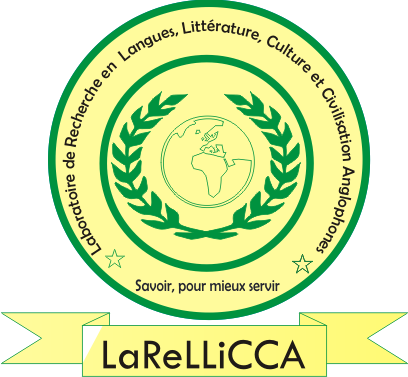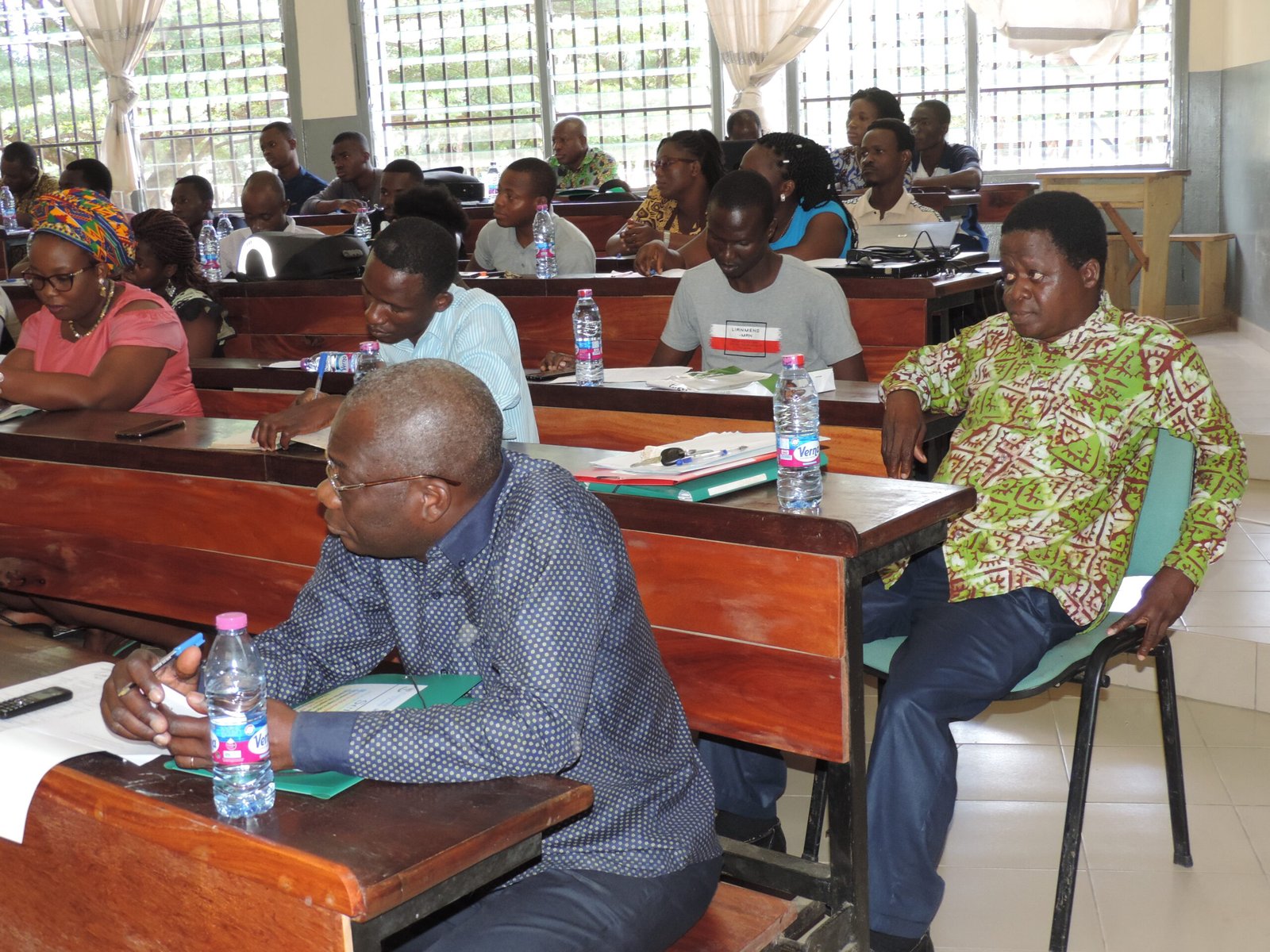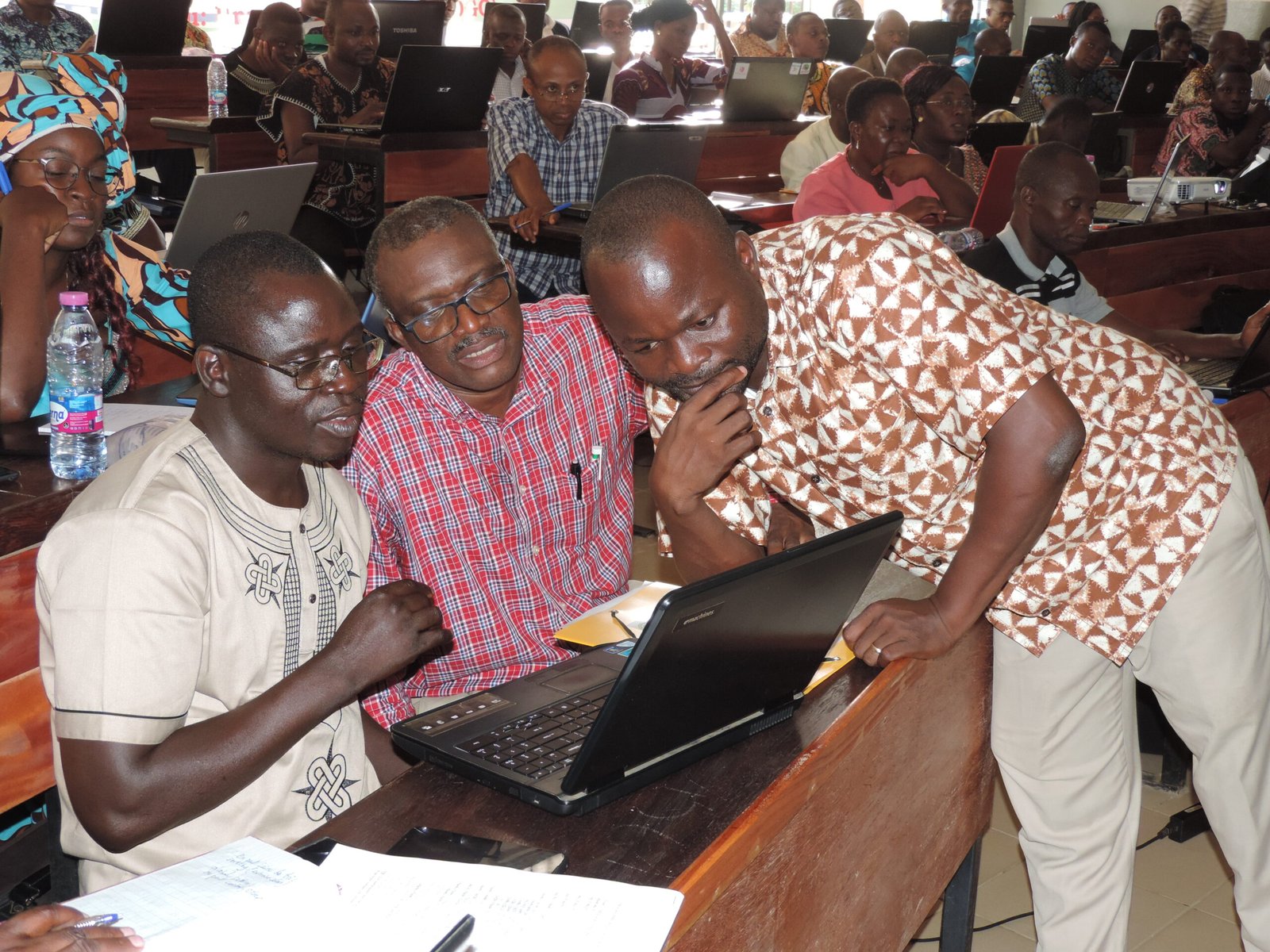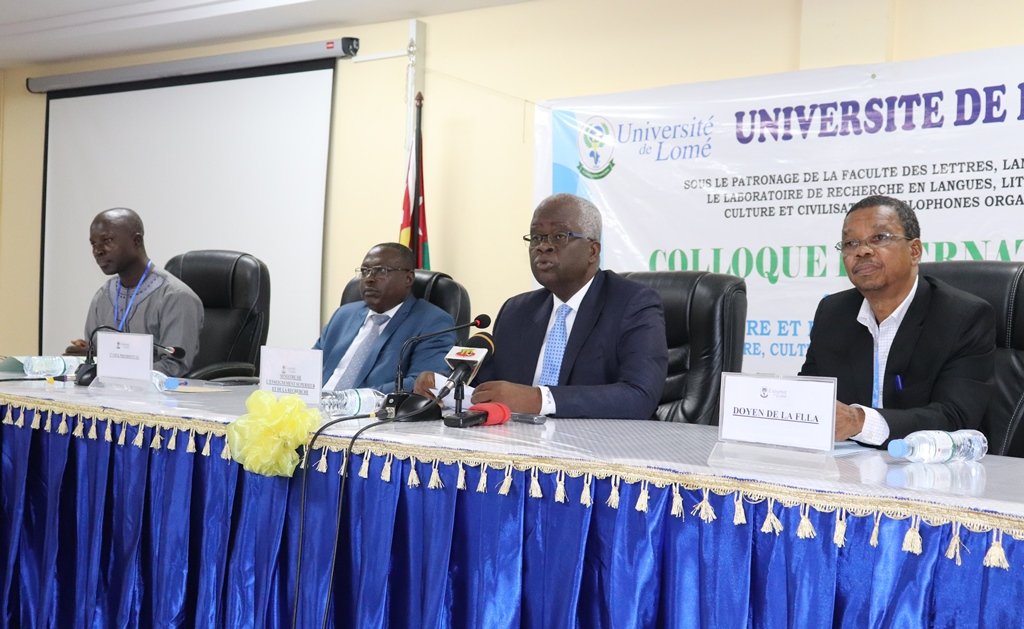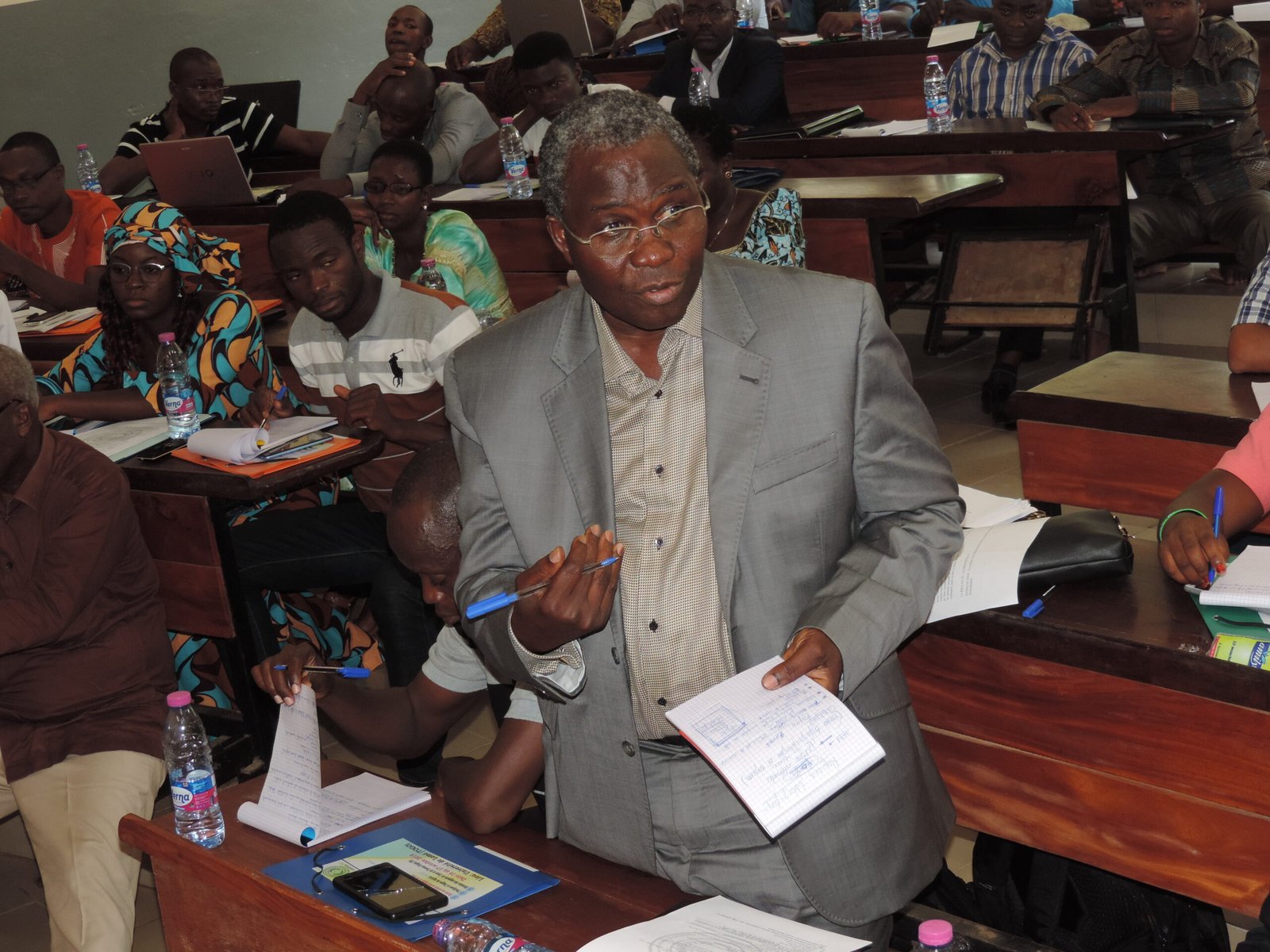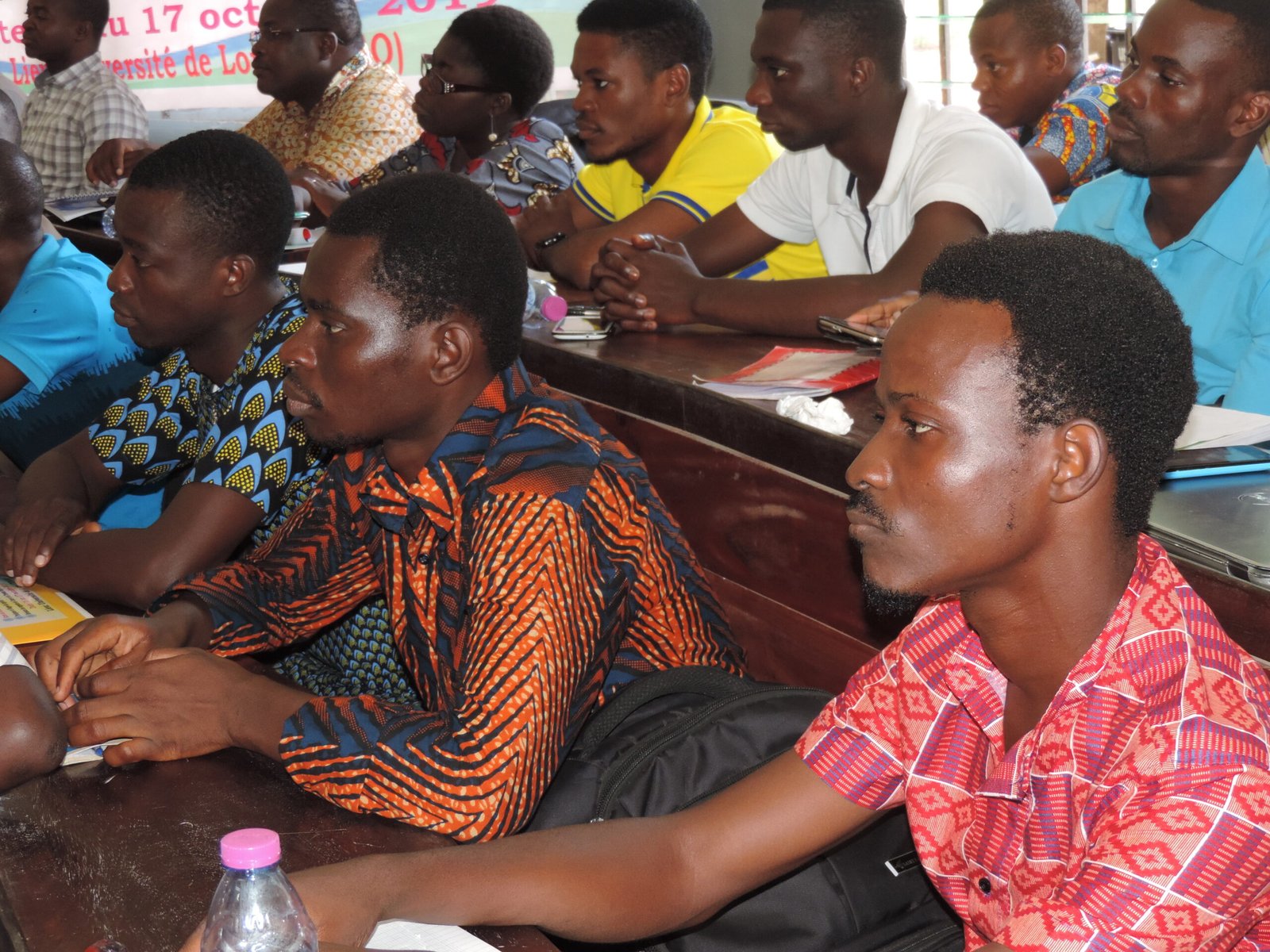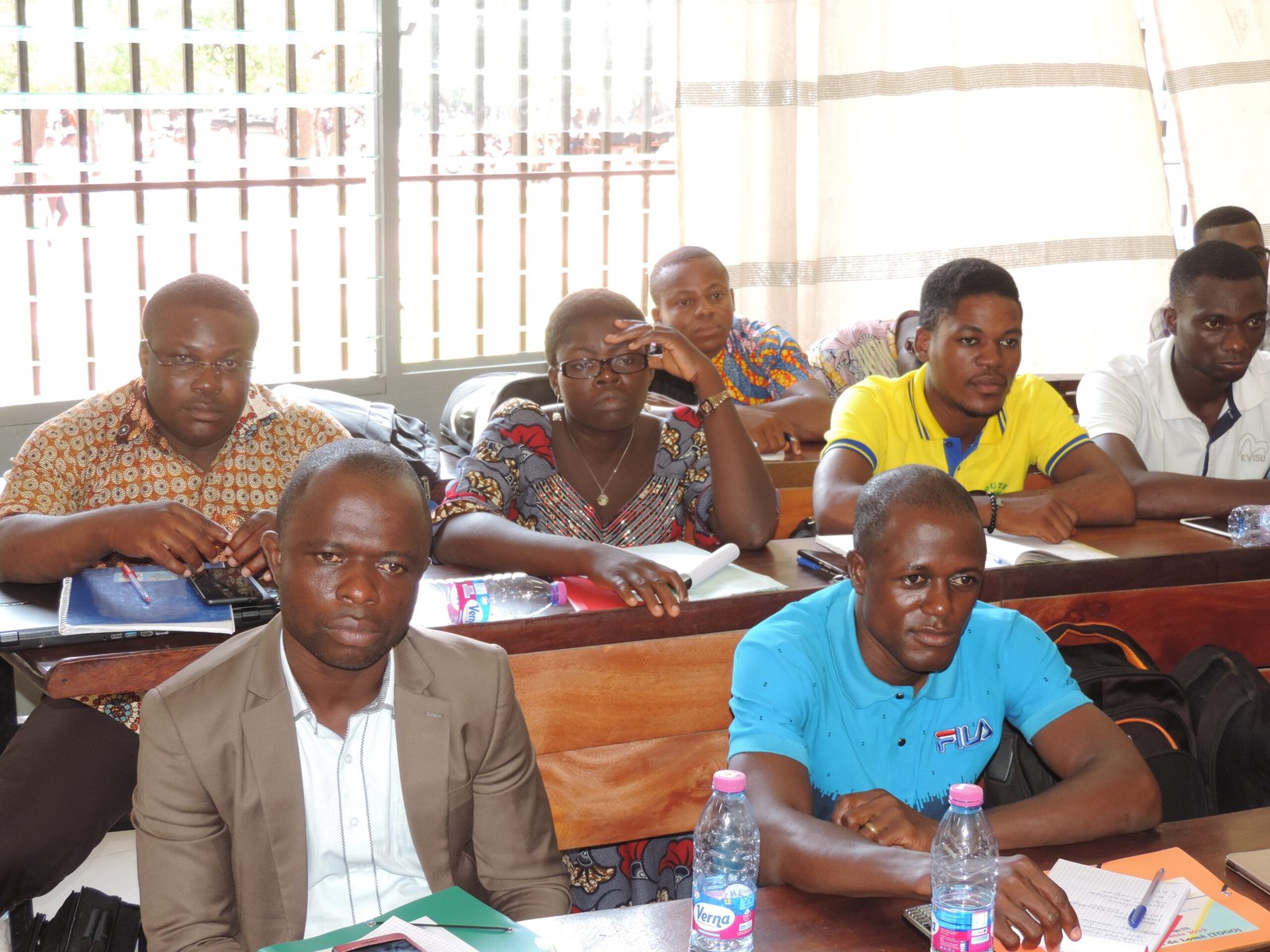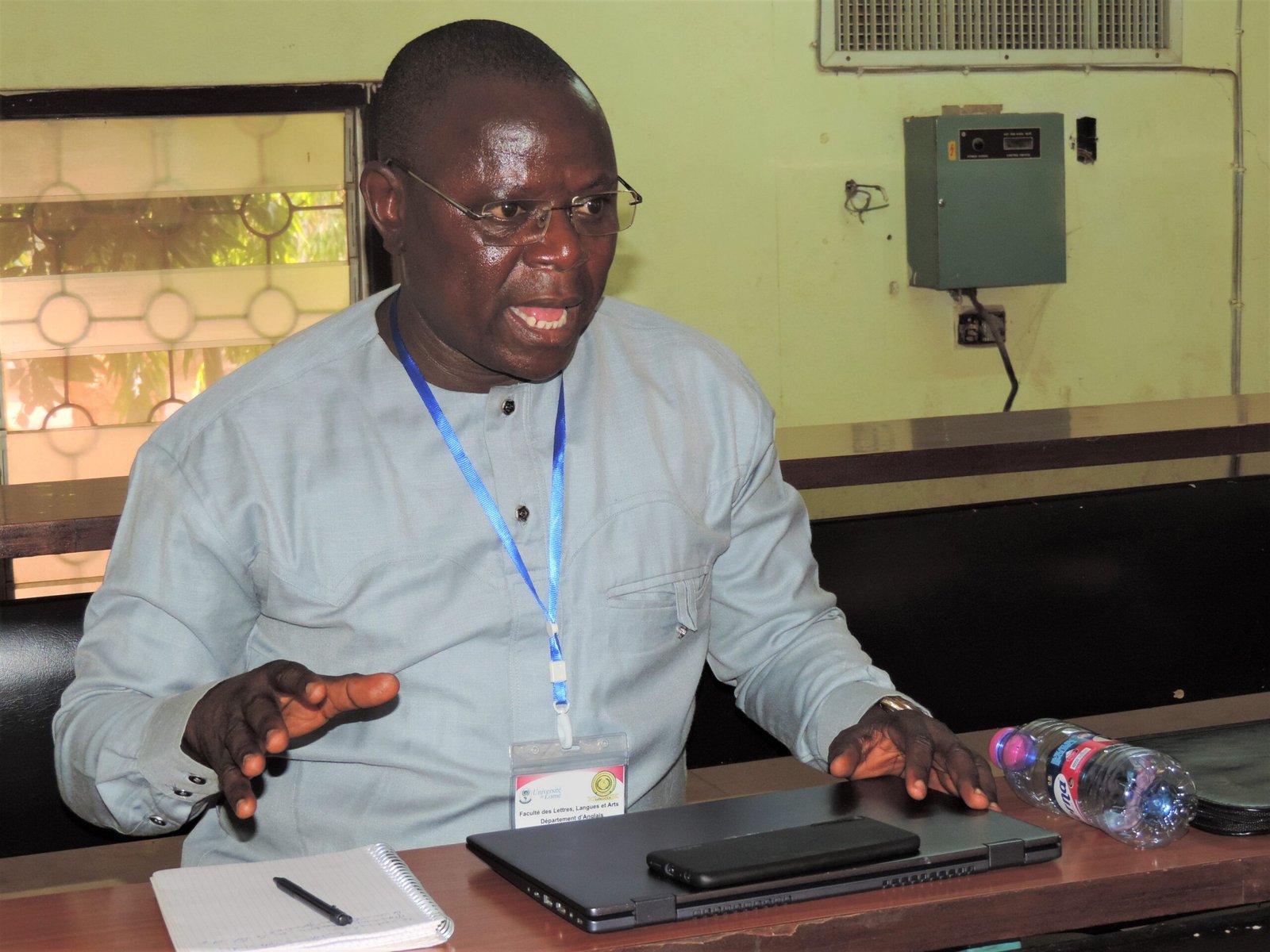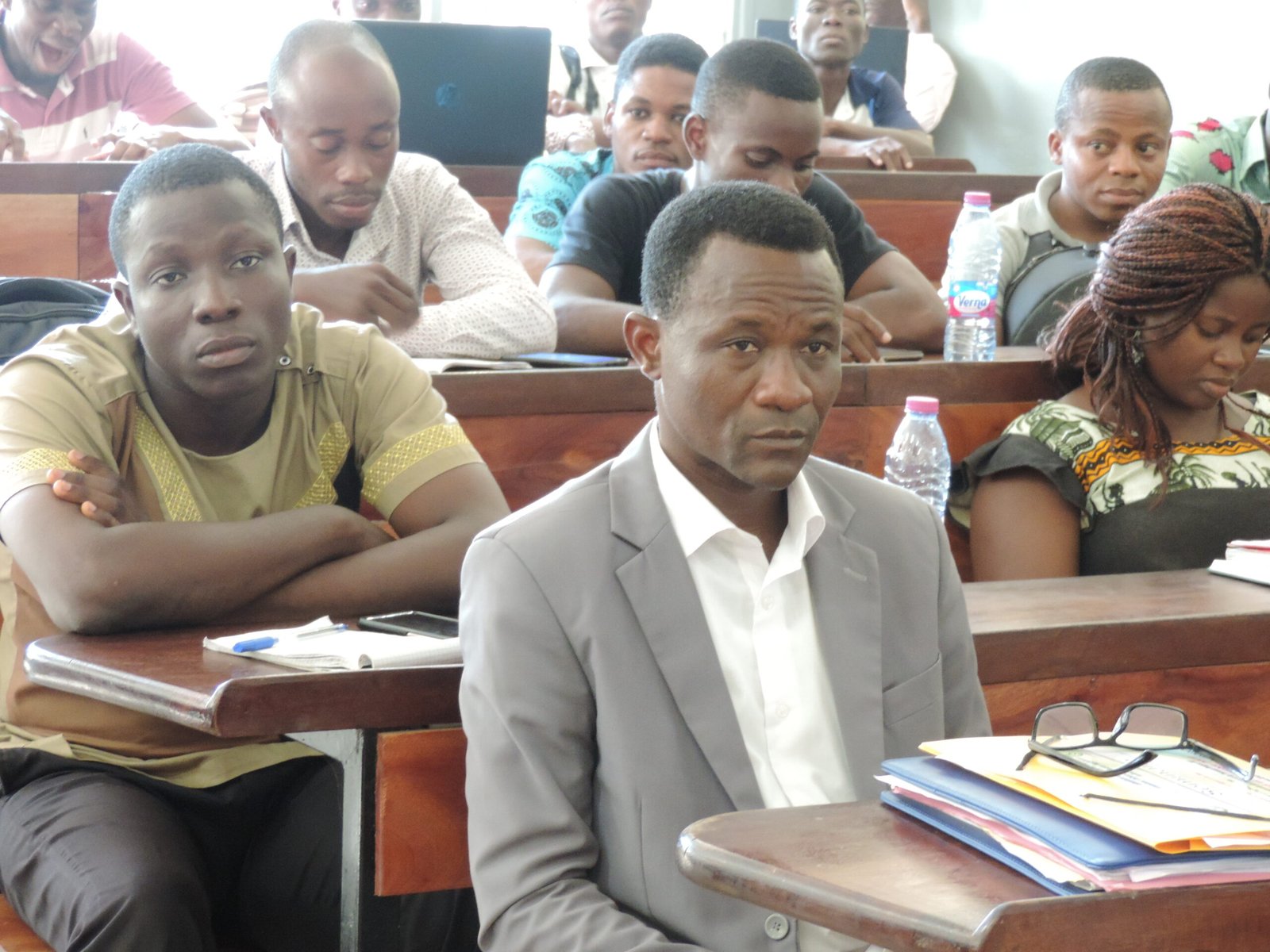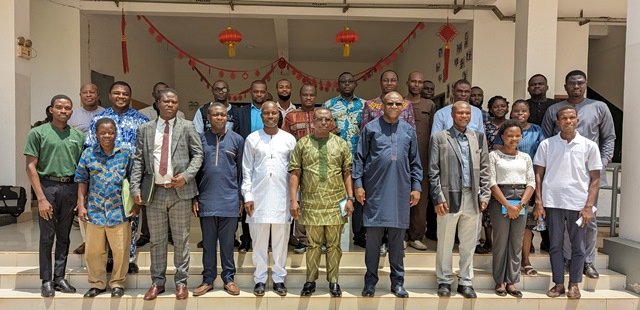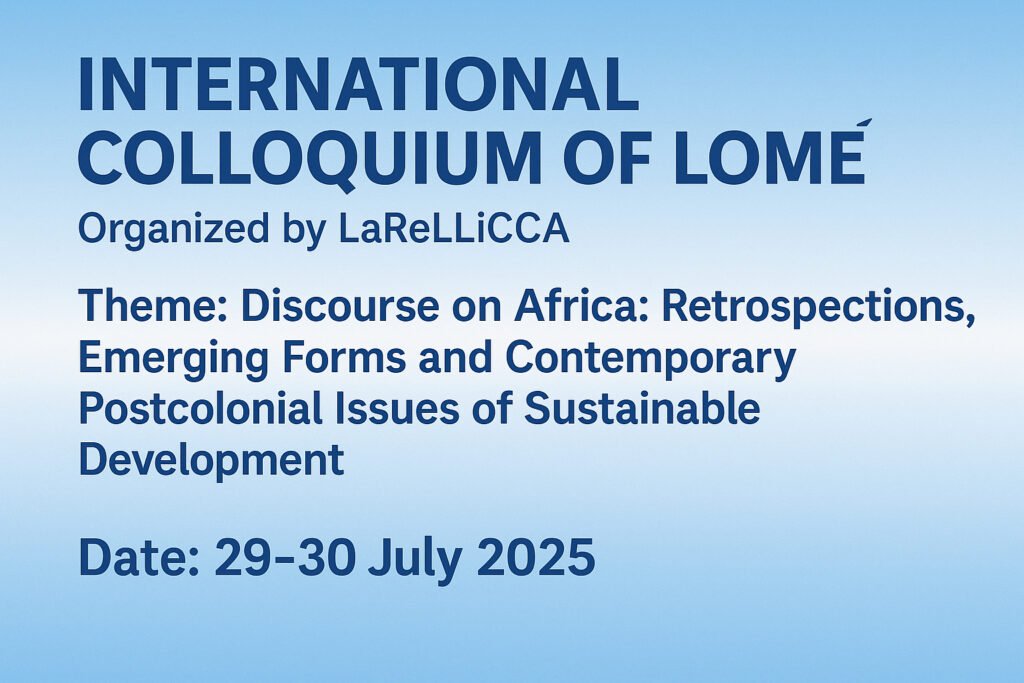
Organizer: Laboratory for Research in Languages, Literatures, Culture and Civilizations (LaReLLiCCA)
Date: 29-30 July 2025
Mode of Presentations: face-to-face or Online
Background and Rationale
The Université de Lomé, in its mission of production and dissemination of knowledge, intends to contribute significantly to the building of social peace and the achievement of the Sustainable Development Goals through its research structures. Thus, the creation of frameworks for exchanges between researchers to reflect on development issues justifies the organization of this conference of the Laboratory for Research in Anglophone Languages, Literature, Civilization and Culture (LaReLLiCCA) on the theme:
« Discourse on Africa: Retrospections, Emerging Forms and Contemporary Postcolonial Issues of Sustainable Development »
Discourses on Africa, its culture and its values have animated writing and literature in African and non-African contexts, thus marking a form of identity expression. Academic research can therefore question the contribution of the various forms of oral or written discourse to the construction of the identity and development of the African continent. This is how the interfaces of languages, literatures, culture and history in their social functions become the foundation for the transmission of know-how and know-how that lay the groundwork for social construction, especially in a postcolonial context where cultural relations reorient discourses towards a constructive interdisciplinarity. African languages, in synergy with Western languages, beyond their functions of transmitting culture, contribute significantly to the construction of endogenous knowledge both through their forms and their diversified contents, which aim at the integration of the individual into the development of his environment. It should be emphasized in this regard that the African peoples build the history of the continent and their identities through the mechanism of expression that are writing and orality, aiming at a path towards the fulfillment of its destiny of happiness (the African continent), expression of the realization of a better future. If we agree with the Nigerian writer Chinua Achebe in « The Novelist as Teacher » (1988) that Africa does not have to be self-conscious about its past, no matter how weak it may be, it is worth remembering that identity-based forms of expression in literature, languages and the arts have contributed significantly to representing Africa in its journey towards the human ideal of development. This thought was reinforced by Ngugi wa Thiong’o in Moving the Centre: Struggle for Cultural Freedoms (1993) and Wole Soyinka in Of Africa (2012). These forms have also served as a linchpin to respond to the Eurocentric discourses that had put Africa’s brilliance at half-mast by denying its past and its history, which is nevertheless rich in values. African writings are taking emerging forms where contemporary authors such as Chimamanda Ngozi Adichie, (Nigeria), Taiye Sellasi (Ghana), Tendai Huchu (Zimbabwe), Chigozie Obioma (Nigeria), Yaa Gyasi (Ghana), Zakes Mda (South Africa), Koutchoukalo Tchassim (Togo), Sami Tchak (Togo), Fatou Diome (Senegal), Kangni Alemdjrodo (Togo), AtchallKaroué (Togo) to name but a few, explore new avenues of writing from Africa by joining the philosophy of Afrocentrism with a much broader opening to the world in the making by evoking on the one hand the dialogue of cultures and on the other hand the preservation of the African heritage in literature, languages, histories and philosophy. The beginnings of this vision were already shared by Molefi Kete Asante, Achille Mbembe, and Valentin-Yves Mudimbe, three African philosophers of postcoloniality, respectively in The Afrocentric Idea (1987), Necropolitics (2011) and The Invention of Africa: Gnosis, Philosophie and the Order of Knowledge (1988). For this new generation of writers, it is a question of reinventing the African continent through a writing and a discourse of repositioning in which Africa finds itself in its entirety. It is in this way that the discourse on Africa will be able to reposition the continent in a new showcase as a conqueror of knowledge, pillars of sustainable development. The stakes of an Africa reconciled with itself would be at the heart of the debates within the African elite.
Organized by the Laboratoire de Recherches en Langues, Littératures, Civilisations et Cultures Anglophones (LaReLLiCCA), this international conference aims to rehash, retrace and examine the forms of discourse on Africa in its history, its contemporary challenges and its future prospects. In this perspective, a call for papers is launched on the thematic axes below around past and emerging discourses on Africa in the fields of human sciences, literature, languages, arts or any other discipline interested in the theme. While emerging forms of discourse on Africa are strongly encouraged, other discourses aimed at revealing Africa as a whole are also welcome. The contributions will aim at an optimal and optimistic (re)reading of the continent and will explore sustainable development paths.
Articles must be written in French or English or any other official language accepted by CAMES.
The different thematic axes of this conference are articulated as follows:
Axis 1: Orality (oral discourse) as a form of writing in Africa
Axis 2: Postcolonial Written Literature: Past and/or Emerging Discourses on the Identity and Future of the African Continent
Axis 3: Women’s Writing and Gender Discourse in Literature
Axis 4: Linguistics, African languages, expressions of identities and the development of Africa
Axis 5: Writing African history, preservation of cultural memories and sustainable development issues
Axis 6: Social Media Discourse (ICT) on Africa
Organizing Committee
Chair: LARE Damlègue, MC, University of Lomé, Togo Vice-Chairperson: WALLA Paméssou, MC, University of Lomé, Togo
Members: PEWISSI Ataféï, PT, University of Lomé, Togo
ANATE Hodabalou, MC, University of Lomé, Togo
BAFANA Komi, MC, University of Lomé, Togo
SIRO Essobiyou, MC, University of Lomé, Togo
ANDOU Winpaga, MC, University of Lomé, Togo
DOUTI Boameman, MC, University of Lomé, Togo KODJOVI Kangnivi, MC University of Lomé, Togo of ALMEIDA Mawulé, MC University of Lomé, Togo DADJA-THIOU Espoir, MC, University of Kara, Togo
KPATCHA Komi, MC, University of Kara, Togo
TAKAO Mawaya, MC, University of Kara, Togo
ADAMA Kangni, MA, University of Lomé, Togo TARNO Akponi, MA, University of Lomé, Togo of ALMEIDA Ayélé Fafavi, MA, University of Lomé, Togo
ANAWI, Pédi, MA, University of Lomé, Togo
PATABADI Patchani Essozimna, MA, University of Lomé, Togo
AMEVOR Senyo, MA, University of Lomé, Togo
ADOKI Kemealo, MA, University of Kara, Togo
OURO-KOURA Youssifou, MA, University of Lomé, Togo
MENSAH Atsou, MA, University of Lomé, Togo
SOEDE Casimir, MC, University of Abomey-Calavi, Benin
IBOURAHIMA BORO Razackou, MC, University of Abomey-Calavi, Benin
AGUESSY Yelian, MC, University of Abomey-Calavi, Benin
AZASU Massavi, Assistant, University of Lomé, Togo
AKAKPO-DOME James, Assistant, University of Lomé, Togo
M’BRA Kouakou, MC, Alassane Ouattara University, Côte d’Ivoire
SORO Adama, (MA), Alassane Ouattara University, Côte d’Ivoire
YEO Fougnigué Madou, (MA), Alassane Ouattara University, Côte d’Ivoire
BLIMI Toualou Stéphane, MA, Alassane Ouattara University, Côte d’Ivoire
SILUE Ténéna Mamadou, MA, Alassane Ouattara University, Ivory Coast YEO Ouakpéléfolo Jean Baptiste, AS, Peleforo Gon Coulibaly University, Ivory Coast
SANOKO Bakary, AS, Institut National Polytechnique Félix Houphouët Boigny, Côte d’Ivoire
OUATTARA Mamadou, AS, Alassane Ouattara University, Côte d’Ivoire
SEKONGO Ouana Alassane, AS, Alassane Ouattara University, Côte d’Ivoire
HIEN Ollo Desiré, AS, Alassane Ouattara University, Côte d’Ivoire DIAMOUTENE Mamadou, MA, University of Bamako, Mali
Scientific committee
Prof. PEWISSI Ataféï, University of Lomé, Togo
Prof. KONE Vamara, Alassane Ouattara University
Prof. AMELA Didier, University of Lomé, Togo
Prof. YODA Lalbila Aristide, Joseph Ki-Zerbo University, Burkina Faso
Prof. YIGBE Dotsé, University of Lomé, Togo
Prof. KRAMOKO Pierre, Alassane Ouattara University, Côte d’Ivoire
Prof. PERE-KEWEZIMA Kokou, University of Lomé, Togo
Prof. KRAMOKO Pierre, Alassane Ouattara University, Côte d’Ivoire
Prof. GANGUE Minlipe, University of Lomé, Togo
Prof. ESSIZEWA Komla, University of Lomé, Togo
Prof. KOUTCHOUKALO Tchassim, University of Lomé, Togo
Prof AFAGLA Kodjo, University of Lomé, Togo
Prof. AMOUZOU Akoété, University of Kara, Togo
Prof. KANTCHOA Laré, University of Kara, Togo
Prof. MOUMOUNI Agbéko, University of Lomé, Togo
Prof. GBAGUIDI Célestin, University of Abomey-Calavi, Benin
Prof. KOUTCHADE Sourou, University of Abomey-Calavi, Benin
LARE Damlègue, MC, University of Lomé
BEGEDOU Komi, MC, University of Lomé, Togo
AVONO Komla M., MC, University of Lomé, Togo
AGBO Kpalambo, MC, University of Lomé, Togo
M’BRA Kouakou, MC, Alassane Ouattara University
MOLLEY Litimé, MC, University of Lomé, Togo
SABLE Gnahoua Jean Jacques, MC, Alassane Ouattara University
WALLA Paméssou, MC, University of Lomé, Togo
ANATE Hodabalou, MC, University of Lomé, Togo
M’BRA Kouakou, MC, Alassane Ouattara University, Côte d’Ivoire
Komi Bafana, MC, University of Lomé, Togo
KOFFI Yssa Désiré, MC, Alassane Ouattara University
SIRO Essobiyou, MC, University of Lomé, Togo
ANDOU Winpaga, MC, University of Lomé, Togo
DOUTI Boameman, MC, University of Lomé, Togo KODJOVI Kangnivi, MC University of Lomé, Togo d’ALMEIDA Mawulé, MC University of Lomé, Togo BAWA Kammampoal, MC, University of Kara, Togo DADJA-TIOU Panaewazibiou, MC, University of Kara, Togo
Important dates:
Call for papers: 13 March 2025
Deadline for submission of abstracts: 30 May 2025
Abstract review date: 05 July 2025
Date of the conference: 29-30 July 2025
Full Paper Submission Date: September 30, 2025
Volume Release: April 30, 2026
Addresses to which abstracts and articles should be sent: Colloquediscours2025@gmail.com laredamlegue@gmail.com wallapamessou@yahoo.fr
tarnoakponi@gmail.com
Conditions of participation:
- Presentation giving the right to certificates:
Doctorate/PhD students: 15,000 CFA
Lecturers and scholars: 30. 000CFA
Organizations/ Institutions: 50. 000CFA
- Additional participation giving the right to publish articles with the publishing house L’Harmattan: 30,000 CFA without distinction
Article editorial standards:
The writing of articles must follow the CAMES standards, namely:
Volume : The size of the typescript is between 6000 and 11000 words. Its A4 paper size, written in Times New Roman, size 12, 1.5 line spacing. For a book presentation, the volume can be between 1500 and 2000 words.
Logical order of the text:
An article or a presentation of books must be a coherent whole. The different elements of the structure must make a coherent whole with the title. Thus, any text submitted for publication must include:
- a title in block letters; it must be expressive and topical, and must not exceed 14 words;
- one abstract in French and one abstract in English. None of these summaries should exceed
150 words;
- keywords in French and English: between 5 and 7 keywords;
- an introduction (history of the theme or review of the literature, problem, methodology, structure of the work) in a maximum of one page;
- A development whose different axes are titled. Only three levels of titles are allowed. For the title, it is strongly recommended to use Arabic numerals; alphabetic and alphanumeric titles are not accepted;
- a conclusion: reminder of the problem, very brief summary of the work carried out, results obtained, recommendations;
- bibliographical references. In alphabetical order of the surnames of the authors cited.
References
The bibliography only mentions the sources actually used (cited, paraphrased, summarized) in the author’s text. For their presentation, the American Psychological Association (APA) standard or integrated references is required of all authors who wish to have their text published in the conference proceedings. Authors are required to use only the standard in their text. For more information, consult these standards on the Internet.
Presentation of referenced notes
The editorial board requires APA (Author, year: page). The use of footnotes is only for the purpose of further explanation. The presentation of references in a mixed style (e.g. APA and MLA used at the same time) is strictly prohibited.
Citation management:
Long quotations: Quotations of forty or more words and four lines or more are considered long and should be indented in single-spaced text.
Short quotations : Quotations of a forty-word word or a passage of less than four lines are considered short; they are enclosed in quotation marks and integrated into the author’s text.
Example of an embedded grade for a book or other cited sources
» ………… (Vernon, 2001: 1); Father (2004:3) « ……………. » Summary :
- Said (2004) argues that postcolonialism is a discursive dialectic between the former colonial powers and their former colonies.
- Irele (2012) argues that the ideology of Western languages in Africa is an imperialist imposition.
- Ourso (2013:12) finds vowels that go beyond the circumscribed framework as recalcitrant vowels.
Summary or paraphrase:
- Ourso (2013:12) finds vowels that go beyond the circumscribed framework as recalcitrant vowels.
Example of Bibliography
- for a book
Collin, H. P. (1988). Dictionary of government and politics. UK: Peter Collin Publishing.
Vernon, R. (2001). Political Morality: A Theory of Liberal Democracy. New York: Continuum.
- for an article based on a collective work
Gill, W. (1998/1990). « Writing and Language: Making the Silence Speak. » In Sheila Ruth, Issues in Feminism: An Introduction to Women’s Studies. (London: Mayfield Publishing Company, Fourth Edition. pp. 151-176).
Okara, G. (1963). « African Speech… English Words. » In G.D. Killam Ed. African Writers on African Writing. London: Heinemann Educational Books. pp. 137-139.
Use of Ibid., op. cit. cit, sic, among others
Ibid. (Ibid.) starts with the second footnote of a cited source reference. Ibid. is followed by the page number if it is different from the parent reference from which it is consecutive. Example: ibid., or ibid., p. x.
Op. cit. is the abbreviation of the Latin word ‘opere citato‘ which means ‘the aforementioned spring’. Op. cit is used when instead of two consecutive references, one or more sources are interspersed. At the moment, the second of the consecutive references requires the use of op. Cit. is followed by the page if the page differs from the previous one.
Author + title of the work + op. cit. + page is used if the author in question has at least two sources in the researcher’s text:
Sic is used to indicate that there is an error in a citation. To do this [sic] is placed just before the erroneous word or badly declined expression.
N.B. Each author will have to master and use writing tools well; ibidem (Ibid.), opere citato (op. cit), et sic; among others.
Typography
- Avoid underlining and bolding characters or portions of text.
- Authors must respect the chosen typography regarding punctuation, abbreviations, etc.
Tables, diagrams and illustrations
For texts containing tables, authors are asked to number them in Roman numerals according to the order in which they appear in the text. Each table must have a precise title and its own source. On the other hand, diagrams and illustrations must be numbered in Arabic numerals and in the order in which they appear in the text.
Selected bibliography:
- Achebe, Chinua, 1975. Morning Yet on Creation Day. New York: Doubleday.
- ——————–. 1982. Hopes and Impediments. New York: Doubleday. 1982.
- Asante, Molefi Kete. 1987. The Afrocentric Idea. Philadelphia: Temple University.
- Emenyonu, Ernest N., 2020. The Literary History of Igbo Novel. Oxon: Routledge.
- Herman, David, M. Jahn and M. Ryan, 2005. Routledge Encyclopedia of Narrative Theory. London and New York: Routledge.
- Mbembe, Achille. 2011. Necropolitics. Durham: Duke University Press.
- Mudibe, Valentin-Yves. 1988. The Invention of Africa: Gnosis, Philosophie and the Order of Knowledge. Indiana: Indiana University Press.
- Ngugi, wa Thiong’o. 1993. Moving the Centre: Struggle for Cultural Freedoms. London: James Currey.
- Ojaide, Tanure, 2008. Contemporary African Literature: New Approaches. Carolina: University of Carolina Press.
- Olanyan, Tejumola and Ato Quayson eds., 2007/2013. African Literature: An Anthology of Theory and Criticism. New York: Blackwell Publishing.
- Rivkin, Julie and Michael Ryan, 2004. Literary Theory: An Anthology 2nd Edition. New York: Blackwell Publishing.
- Sarr, Felwine, 2016. Afrotopia. Paris: Philipp Rey.
- Soyinka, Wole. Of Africa. New Haven and London: Yale University Press. 2012. – ——————- The Burden of Memory. The Muse of Forgiveness. Oxford: Oxford University Press. 1999.
- Tyson, Law. 2006. Critical Theory Today: A User Friendly Guide. London and New York : Routledge.
